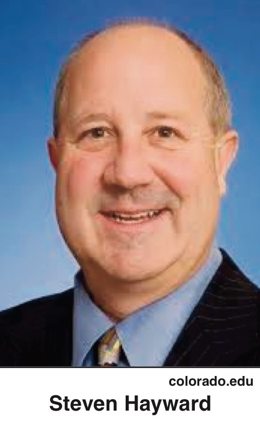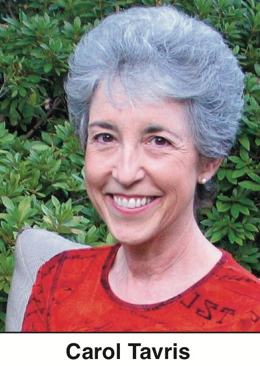Rascals case in brief
In the beginning, in 1989, more than 90 children at the Little Rascals Day Care Center in Edenton, North Carolina, accused a total of 20 adults with 429 instances of sexual abuse over a three-year period. It may have all begun with one parent’s complaint about punishment given her child.
Among the alleged perpetrators: the sheriff and mayor. But prosecutors would charge only Robin Byrum, Darlene Harris, Elizabeth “Betsy” Kelly, Robert “Bob” Kelly, Willard Scott Privott, Shelley Stone and Dawn Wilson – the Edenton 7.
Along with sodomy and beatings, allegations included a baby killed with a handgun, a child being hung upside down from a tree and being set on fire and countless other fantastic incidents involving spaceships, hot air balloons, pirate ships and trained sharks.
By the time prosecutors dropped the last charges in 1997, Little Rascals had become North Carolina’s longest and most costly criminal trial. Prosecutors kept defendants jailed in hopes at least one would turn against their supposed co-conspirators. Remarkably, none did. Another shameful record: Five defendants had to wait longer to face their accusers in court than anyone else in North Carolina history.
Between 1991 and 1997, Ofra Bikel produced three extraordinary episodes on the Little Rascals case for the PBS series “Frontline.” Although “Innocence Lost” did not deter prosecutors, it exposed their tactics and fostered nationwide skepticism and dismay.
With each passing year, the absurdity of the Little Rascals charges has become more obvious. But no admission of error has ever come from prosecutors, police, interviewers or parents. This site is devoted to the issues raised by this case.
On Facebook
Click for earlier Facebook posts archived on this site
Click to go to
Today’s random selection from the Little Rascals Day Care archives….
Click for earlier Facebook posts archived on this site
Click to go to
Today’s random selection from the Little Rascals Day Care archives….
Prosecutors’ motto: But they’re still guilty!
Jan. 20, 2012
Although the West Memphis Three weren’t day care workers, their notorious case – most recently updated in HBO’s “Paradise Lost 3: Purgatory” – holds obvious parallels to that of the Edenton 7.
In both courtrooms voodoo justice ruled.
Most poignant to me, however, is that prosecutors in Arkansas and North Carolina shared a dedication to ensuring the defendants’ long-overdue release bore the least possible resemblance to exoneration.
In August 2011 the West Memphis Three were required to enter an Alford plea, maintaining their innocence but acknowledging that sufficient evidence existed to convict them.
On May 23, 1997, Nancy Lamb announced the decision not to challenge the overturned convictions of Bob Kelly and Dawn Wilson in order to “allow wounds to heal…. The paramount thing is not having to drag these children through this again.” Her timing seemed aimed – futilely, as it turned out – at averting the national outrage that would come four days later with the airing of the final episode of “Innocence Lost.”
Two years later, when the last charges against Kelly were dismissed, here’s how Joseph Neff of the News & Observer described the scene:
“The prosecutors in the longest, most expensive criminal case in North Carolina history picked a day when all attention was focused elsewhere to quietly throw in the towel.
“It was Sept. 15, as Hurricane Floyd churned northward toward landfall the next day, that Assistant District Attorney Nancy Lamb filed a two-page document with the Clerk of Superior Court in Edenton, dismissing eight counts of sexual abuse against Robert Kelly.”
McCrory fosters NC’s own costly moral panic

martinsvillebulletin.com
Ben R. Williams
May 29, 2016
“It’s easy to whip people into a frenzy over a moral panic (such as ‘satanic ritual abuse’ in the 1980s). All you do is tell people there’s a vast segment of humanity that wants to prey on their children. You tell them that these predatory people aren’t like us – they’re outsiders with different values. And you make sure that the talking heads on TV keep the story alive.
“Is it possible that a moral panic could happen today?
“Just ask Gov. Pat McCrory, who has cost his state millions of dollars defending a law that allegedly protects North Carolina children from transgender bathroom-goers – a statewide crisis that suddenly popped into existence during an election year, conveniently enough.
“Moral panics still exist, and they’re still absurd. The only difference is, they’re a lot more expensive than they were back in the ’80s.”
– From “History warns us to beware of ‘moral panic’ ” by Ben R. Williams in the Martinsville (Va.) Bulletin (May 27)
![]()
News media newly skeptical about sex allegations?
 Dec. 3, 2014
Dec. 3, 2014
“I was in graduate school in Southern California 30 years ago when the McMartin Preschool scandal erupted, featuring tales of Satanic rituals, underground tunnels, group sex with animals and children, and various acrobatic acts that would challenge Cirque du Soleil, all believed credulously by the media and California prosecutors….
“There was something so literally incredible about (such) ‘Satanic ritual abuse’ cults that serious doubts and questions should have been raised right at the outset.
“Some hard questions are starting to be asked about the latest sequel to the Salem witch trials – the college campus ‘rape culture’ hysteria…. The Rolling Stone story about an especially brutal gang rape at the University of Virginia is provoking considerable backlash– with a few critics suggesting the entire story might be a hoax ….
“It took years for the ‘Satanic child abuse crisis’ to collapse, and several months for the Duke lacrosse scandal to turn around. What is interesting about the UVa story is how quickly it is facing credible challenge….”
– From “The Spirit of Salem Lives On” by Steven Hayward at powerlineblog.com (Dec. 2)
Three ‘built-in biases’ with tragic consequences
 Dec. 2, 2013
Dec. 2, 2013
“Of the many built-in biases in human thought, three have perhaps the greatest consequences for our own history and that of nations: the belief that we see things as they really are, rather than as we wish them to be; the belief that we are better, kinder, smarter and more ethical than average; and the confirmation bias, which sees to it that we notice, remember, and accept information that confirms our beliefs – and overlook, forget and discount information that disconfirms our beliefs.”
– From “History Gets in Bed With Psychology, and It’s a Happy Match”
by Carol Tavris at History News Network (Nov. 11, 2013)
Once again Dr. Tavris nails it. The prosecutors in Little Rascals and the other day-care ritual-abuse cases fit her profile as exactly as if they had been completing a checklist. Yes, it must have been difficult to resist those “built-in biases” – but it wasn’t impossible.











0 CommentsComment on Facebook